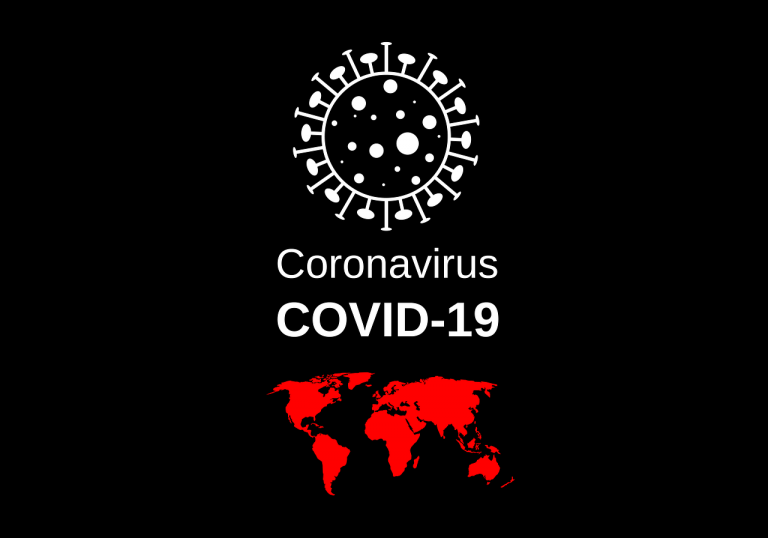Hazvinei Mwanaka
MASVINGO- Every time she catches a cold, her heart starts beating faster. The vivid picture of her ill grandmother lying down on a mat deeply agonized with pain is still lingering in the back of her mind.
“If I could erase a moment in my life is the time I nursed my sick grandmother who was diagonised with Covid 19. She assumed the role of my mother and raised me since birth following my mothers’ death while giving birth to me.”
“So she was everything to me. As a young women, I was delicate to this world but she made me feel safe. I could tell her anything, she was a true friend,” said Shorai an eighteen year old girl who resides in Mucheke suburb in Masvingo.
Shorai, who refused to be identified by her surname, lost her grandmother to the highly infectious respiratory disease in 2020.
She says her death left scars that no one could heal. Not even time will heal her, she says.
“I am still traumatised. She was not in pain for a long time, at first we just thought that it was just some flue but it later developed to be severe. She latter tested positive to the disease and passed away within some few days.
“It happened suddenly. I know one can’t prepare for death but for gogo I was robbed of my mentor,” lamented Shorai, with her eyes becoming teary.
Now left at the hands of other family members Shorai said she hardly sleeps at night, eats less and often dreams of her grandmother.
“At times I just feel her next to me, I hardly spend a day without remembering her, I try to erase her out of my mind but I am failing. I am having recurring headaches which I ease by taking sleeping tablets,” she added.
When the COVID 19 outbreak hit Zimbabwe, came no one was prepared for it. Many things happened during the outbreak from poverty, deaths, job losses and the induced lockdowns worsened the issues and triggered most mental health issues.
Psychologists believe that COVID 19 escalated health issues which were already there such as depression, anxiety and common mental disorders. COVID 19 also went on to block the health seeking behavior especially during the lockdowns which limited people to move.
Angelica Mkorongo, founder of OCD Trust, an organization that deals with mental health issues said when one is affected by COVID 19 directly or indirectly, they undergo serious mental issues.
“Survivors of COVID 19 disease, and those whose relatives died will actually suffer from post-traumatic stress disorder, therefore there is need for psycho social support,” she said.
One survivor, Rogers Irimayi, who was affected by COVID 19 in January 2021 said by the time he contracted the disease many people were suffering as well as dying.
“I was on leave, I remember that on that time in our province we had lost a traditional leader chief Marozva and that was the same period we also lost minister Biggie Matiza and during that time I was serious and suffering.
“The death of these two came at a time when I was bedridden, it traumatized me, I had spoken to chief Marozva two weeks before his death, as well as Biggie Matiza and Perence Shiri when they had visited Masvingo,” he said.
He added that before Perence Shiri died and when he visited Masvingo he held a microphone for him for a video shoot at Tugwi Murkosi.
“Imagine these are people I knew and I had interacted with them, their deaths came as a surprise and to me it was just a sign that I was going the same way. Yes it really had an impact on me,” said Irimayi.
According to him, he was fortunate that he had care from his wife was who is a nurse by profession. He said she worked very hard to ensure that his condition did not deteriorate.
“She tried everything from medicines and concoctions that were recommended by other people. I remember taking a lot of them from supermarkets and herbalists. There was no day that passed by without me trying something new just to save my life,” he added.
He later went back to work after the 14 day isolation.
“My first day at work worsened the trauma. When I entered the gate the officers who were around ran away from me and the stigma worsened the trauma. However I managed to face them head on that what you are doing is not good. Me being part of the taskforce team leading the campaigns on COVID 19, I later educated them,” he said.
These are some of the scenarios most people who were affected by COVID 19 suffered from.
In a publication by the World Health Organisaation (WHO) titled; Mental Health and COVID – 19: Early evidence of the pandemic’s impact: scientific brief released this March shows that the pandemic has had a severe impact on the mental health and wellbeing of people around the world while also raising concerns of increased suicidal behavior.
The GBD (Global Burden Disease) 2020 (7) estimated that the COVID-19 pandemic has led to a 27.6% increase (95% uncertainty interval (UI): 25.1–30.3) in cases of major depressive disorder (MDD) and a 25.6% increase (95% UI: 23.2–28.0) in cases of anxiety disorders (AD) worldwide in 2020.
Overall, the pandemic was estimated to have caused 137.1 (95% UI: 92.5–190.6) additional disability adjusted life years (DALYs) per 100 000 population for MDD and 116.1 per 100 000 population (95% UI: 79.3–163.80) for AD. The greatest increases in MDD and AD were found in places highly affected by COVID-19, as indicated by decreased human mobility and daily COVID-19 infection rates. According to the report, females were more affected than males, and younger people, especially those aged 20–24 years, were more affected than older adults. Many low- and middle-income countries (LMICs) were also majorly affected,” reads part of the report.

